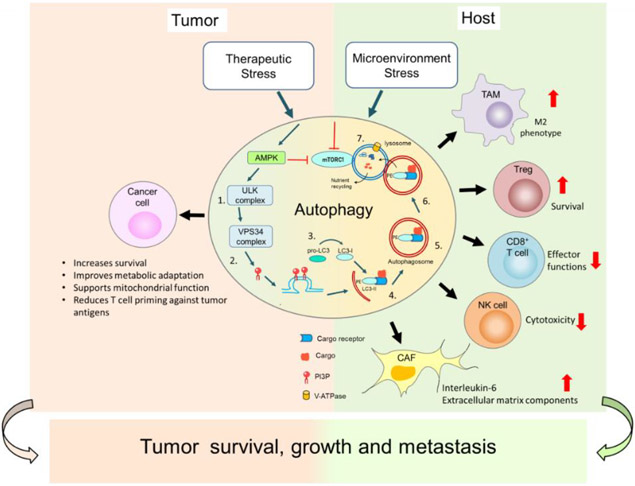Figure 2. Autophagy supports tumor growth and survival by modulating cancer cells in the tumor, and host cells in the tumor microenvironment (TME).
Stressors on cancer cells induce autophagy (please see Figure 1 for details) in both cancer cells as well as in non-cancerous host cells. In cancer cells, autophagy induction promotes their survival by altering their metabolism to provide nutrients and promoting their mitochondrial function under stress. Autophagy degrades immunoproteasome components and MHC-I molecules to escape antitumor immunity. In the TME in non-cancerous host cells, autophagy promotes an M2 phenotype of tumor associated macrophages (TAMs) that support tumor cell growth. Autophagy can also enhance T regulatory cells (Tregs) leading to immunosuppression in the TME. Autophagy limits infiltration and effector functions of CD8+ T cells and natural killer (NK) cells. Autophagy also enhances the activity of cancer associated fibroblasts (CAFs) in the extracellular matrix that supports tumor growth and metastasis. Together the functions of autophagy in cancer cells and host cells support tumor survival, growth, and metastasis.

